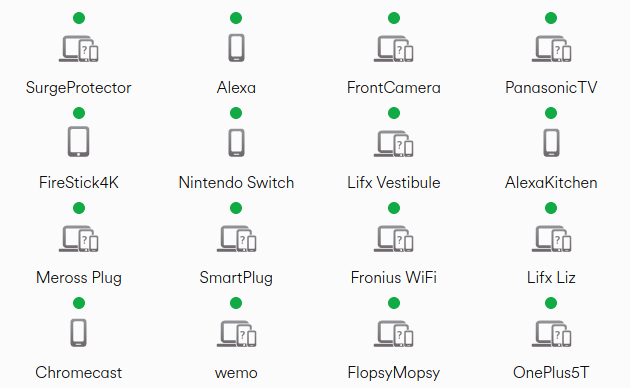Network Effects
I recently took a survey which asked how many hours per week I spent "online". It struck me as a bizarre question. I am always online. Even when I am asleep, my phone is downloading email, my laptops are updating themselves, and my cameras are scanning for intruders.
I realise that I am probably a statistical outlier - but I thought it would be interesting to see how many Internet connected devices I have in my flat.
Here they are, in no particular order...
- My Android phone.
- Liz's Android phone.
- NAS
- Work PC
- Work laptop
- Liz's laptop
- MediaCentre (OpenElec)
- Xbox 360
- Original Xbox
- Wii
- Panasonic TV
- Y-Cam security camera
- Another Y-Cam security camera
- Liz's Kindle
- My Nook
- BlackBerry PlayBook
- My car has a DriveToImprove Telematics device, and it can also connect to the net via my phone's BlueTooth.
- Miscellaneous test phone which I occasionally use.
Ideally, I would like to have our heating system connected to the net - although the timer switch we have at the moment is sufficient.
I'm not yet convinced of the need for smart meters. Security concerns aside, there's no advantage to me in being able to track my electricity usage minute-by-minute. I suppose I could connect our laser printer to the net - but printing is something which only happens once in a blue moon, so it hardly seems worth it.
What else is it reasonable to connect a home network? I'm not sure what use a SmartFridge or an iToilet is.
This proliferation of devices highlights the need for fast Internet connectivity. It also shows up the Governments plans as deeply flawed.
The government is also aiming for 90% of the country to have access to superfast services – defined as 24Mb per second or more – by 2015, with the final 10% receiving no less than 2Mb.
I currently have 24Mbps - which, in practice, is 16Mbps. If Liz and I are both separately streaming movies, the service just about works. But if one of our other devices decides that it's time to auto-update, or my phone starts downloading some large email attachments, or the iFridge decides to place an shopping order - the speeds rapidly drop.
Scale that up to the typical British family of four and you have a problem. 16Mbps gives each family member 4Mbps - assuming that you have a router which can allocate bandwidth in such a smart way.
Movies and music are increasing in size. There are more devices than every connecting to the Internet. 24Mbps is inadequate now let alone for three years' time.
Part of this problem will be alleviated with 4G, and a few people will benefit from fibre-optic speeds. But that's not enough.
We need to have a national broadband strategy which insists on a 100Mbps minimum for every household. With a clear path on speed upgrades every 12 months. The connections need to by symmetric (or, rather, less asymmetric), so that people can upload as quickly as they download.
The Internet is too important to our economy for anything less.



